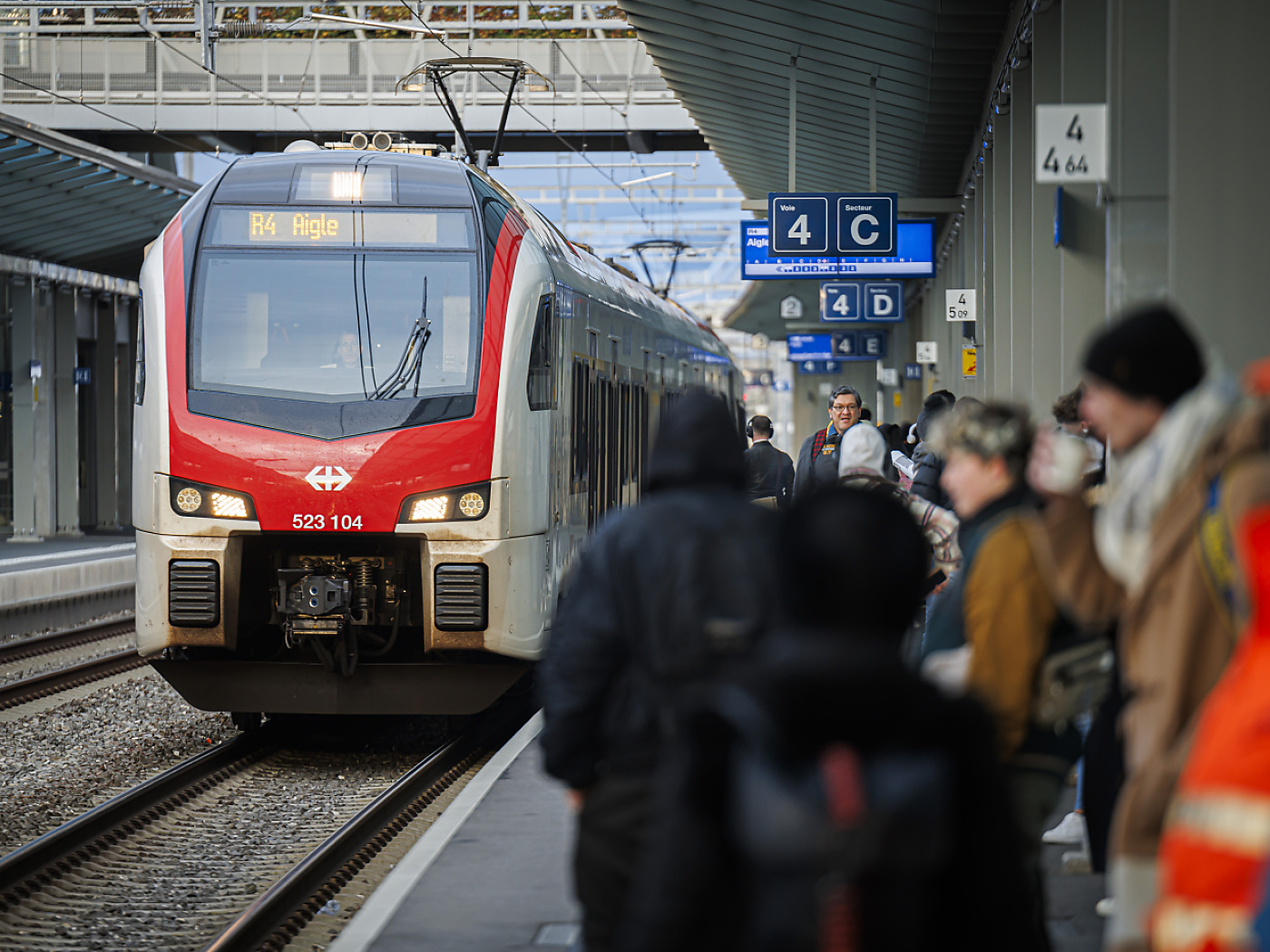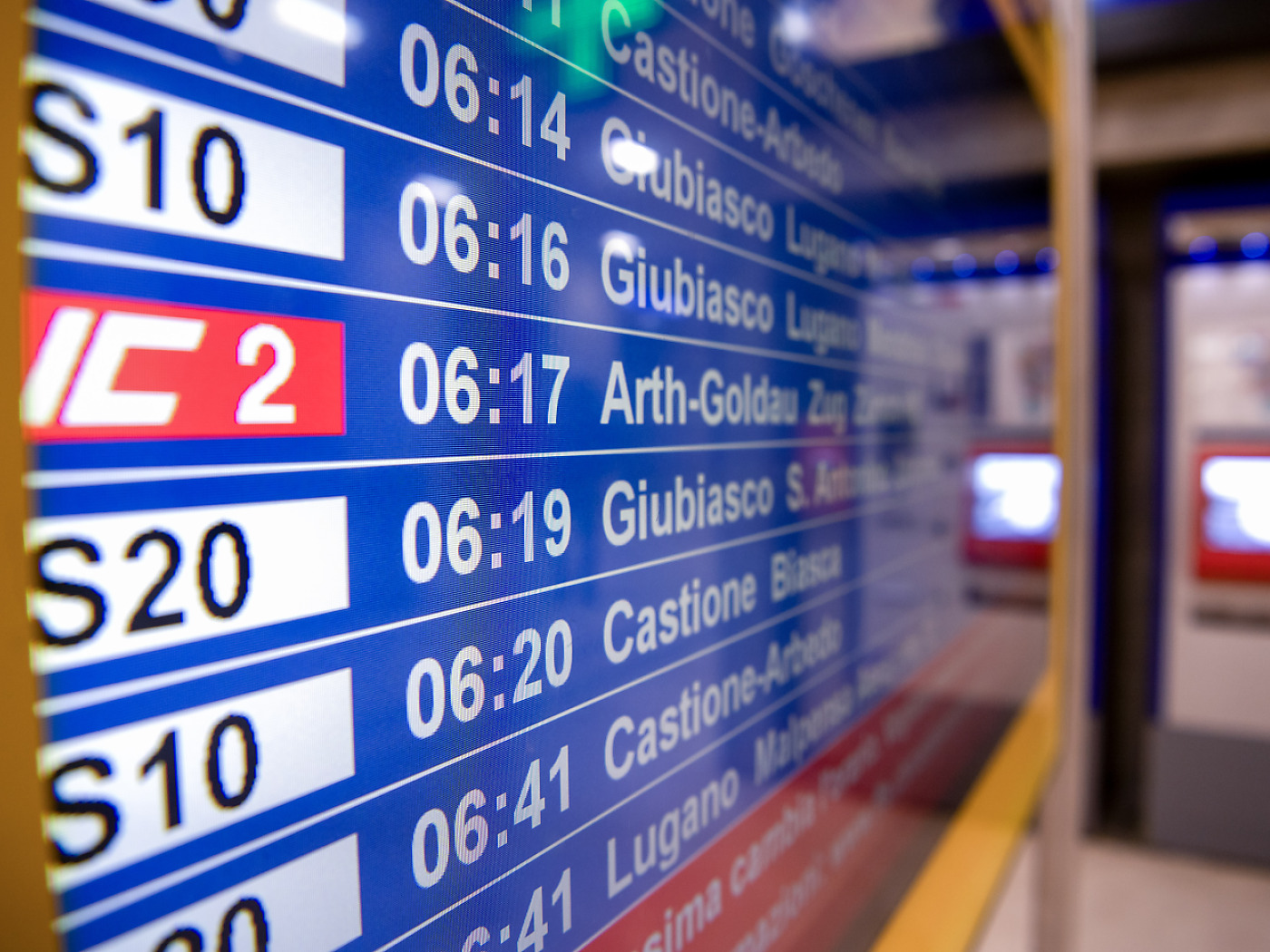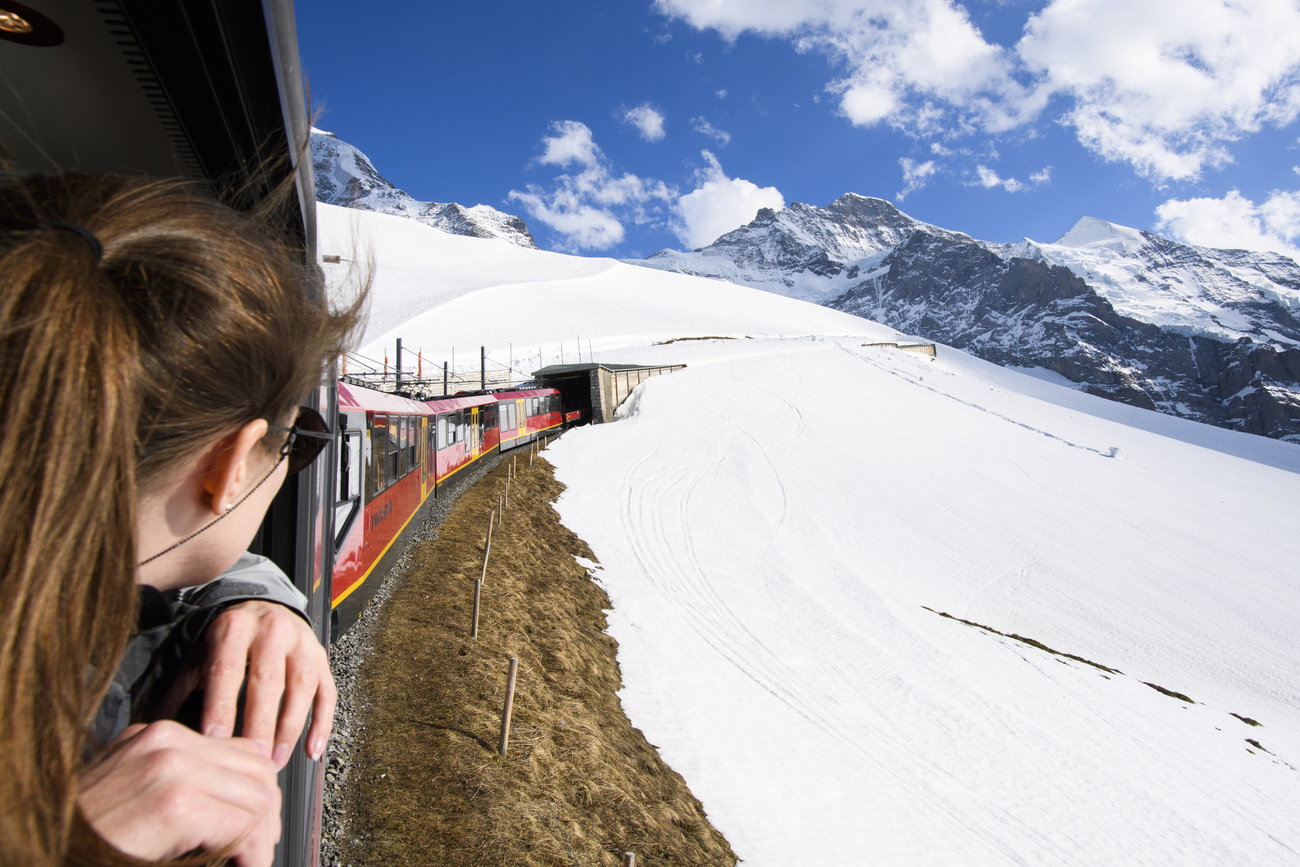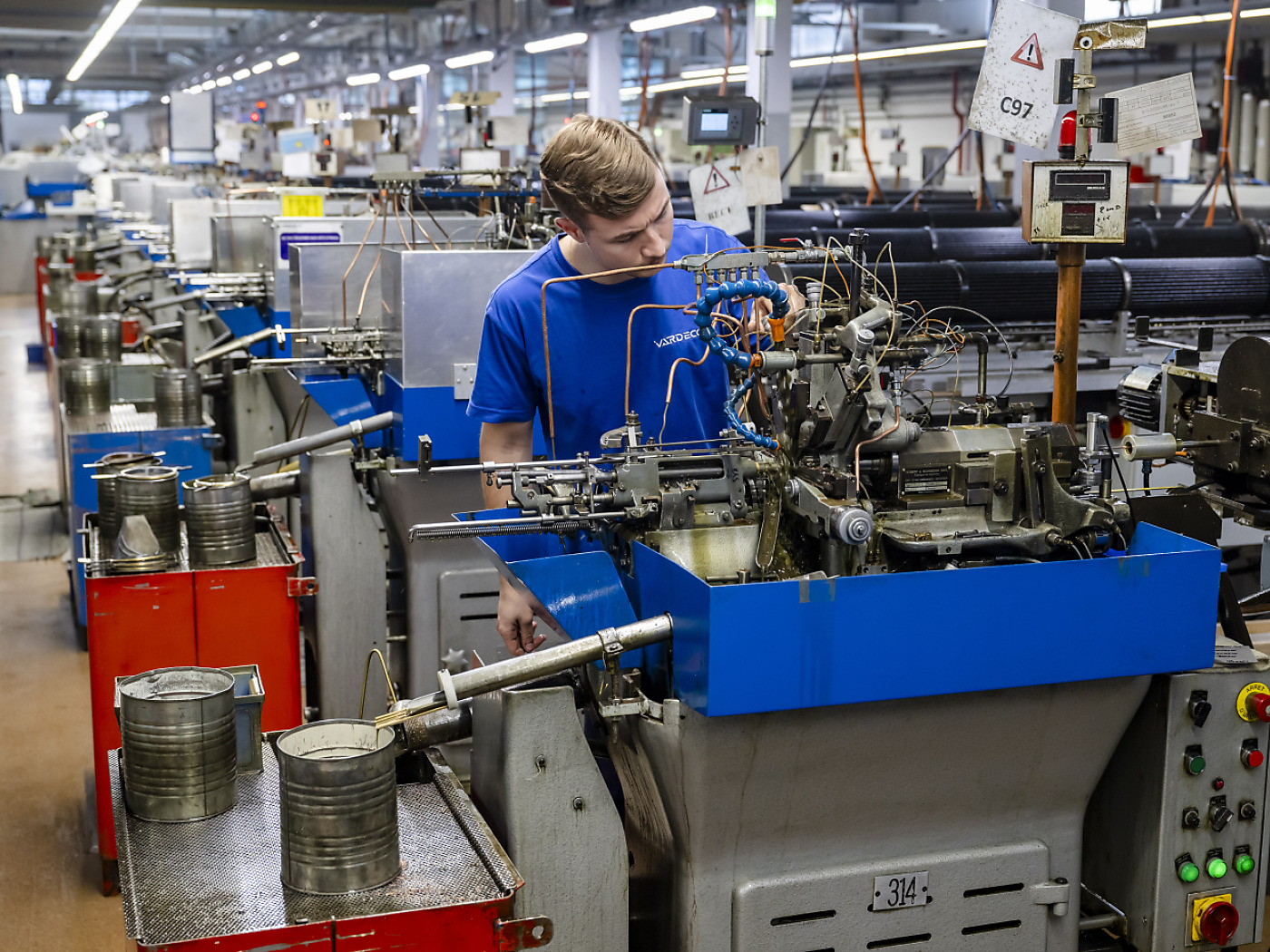Swiss Federal Railways’ new timetable passes ‘commuter test’

The changeover to a new Federal Railways timetable went smoothly for Swiss commuters on Monday morning. Trains were punctual and no overcrowding was observed, say officials.
+Get the most important news from Switzerland in your inbox
“Our assessment after a day and a half of commissioning is very positive. It’s mission accomplished for the first day,” Federal Railways Regional Director David Fattebert told reporters at the Renens operations centre in canton Vaud on Monday.
On average, trains on the French-speaking Switzerland network were 13 seconds behind schedule. “This punctuality has not been achieved in French-speaking Switzerland for several years,” said Fattebert.

More
Swiss Federal Railways launches new timetable with night trains and more connections
Some problems were observed on the Broye line in southwestern Switzerland, however. “We still face major infrastructure challenges in this region,” he added.
Better staggering targeted
Customer assistants present in main stations were not used very often. “On the whole, commuters were very well informed,” said Fattebert.
Busy commuter trains travelling between 7 and 8 am will be monitored more closely over the next few days. “We’ll have to take steps to ensure that passengers stagger along the entire length of the train,” said Fattebert.

More
Swiss Federal Railways rated second best in Europe
The changeover at Renens, which has become necessary for certain journeys between Neuchâtel and Geneva, has also been closely examined by the Federal Railways. “Both the elderly and families with luggage managed to change platforms stress-free and in less than three minutes, whereas the connection time is five minutes,” said Fattebert.
Inevitable incidents
“I’m a very happy operations manager today,” said Patrick Michaud, head of the Renens operations centre. “Of course, some trains are running late, but managing these problems is part of our daily work.”
No fewer than 2,500 trains run every day on the 800 kilometers of track in French-speaking Switzerland. Some 500 incidents occur daily, the vast majority of which go unnoticed by passengers.
15% more trains
Sunday’s timetable change is the biggest in French-speaking Switzerland for 20 years. The basic structure of the timetable, which dates back to the 2000s, has been adapted to absorb the constraints associated with the numerous rail infrastructure modernisation and development projects. While the departure times of almost all trains in French-speaking Switzerland have been modified, customers in French-speaking Switzerland now have access to around 15% more trains.
Renens, for example, has been served by long-distance trains since Sunday, while services between the foot of the Jura mountains, via Biel, Neuchâtel, Yverdon-les-Bains and the Lausanne/Renens rail hub have been reinforced. IC5 fast trains will run every half-hour on this route.
+ Read more: Swiss are keenest rail users in Europe
Night services in cantons of Vaud and Geneva are also being improved, while PostBus is increasing its services. The most significant changes concern the Lausanne-Geneva axis.
Line extensions and new connections
In canton Neuchâtel, in particular the lines in the lower part of the canton, and in canton Fribourg, users will benefit from an enhanced range of services and connections. In canton Valais, an extension of PostBus routes is planned for the St Maurice region.
In the Upper Valais region, several new morning services will be introduced to connect with the first train to Bern. In the Jura region, however, there will be no major changes, just minor adaptations.
New night trains
The rest of Switzerland will also see changes, including new night trains and more connections to neighbouring countries.
+ Swiss night trains: past, present and future
Federal Railways warns that numerous ongoing construction sites will sometimes mean longer journey times, or require passengers to change trains more often. It advises customers to consult the online timetable on SBB.ch or in the SBB Mobile app before each journey.
Translated from French by DeepL/sb
This news story has been written and carefully fact-checked by an external editorial team. At SWI swissinfo.ch we select the most relevant news for an international audience and use automatic translation tools such as DeepL to translate it into English. Providing you with automatically translated news gives us the time to write more in-depth articles.
If you want to know more about how we work, have a look here, if you want to learn more about how we use technology, click here, and if you have feedback on this news story please write to english@swissinfo.ch.

In compliance with the JTI standards
More: SWI swissinfo.ch certified by the Journalism Trust Initiative


















You can find an overview of ongoing debates with our journalists here . Please join us!
If you want to start a conversation about a topic raised in this article or want to report factual errors, email us at english@swissinfo.ch.